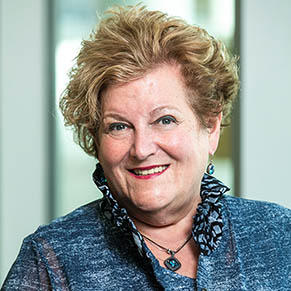In This Story

A team of ĐÔĘӽ紫ý researchers will colead engagement activities at a new center at Mason and Duke University as part of a five-year grant from the National Institutes of Health (NIH). The purpose of the grant is to develop lay-friendly and culturally appropriate communications of new scientific findings to communities most affected by the opioid crisis, pain, opioid misuse, and overdose.
The funding is from the NIH Helping to End Addiction Long-term Initiative, or NIH HEAL Initiative.ĚýAs part of the program, Mason is coleading the HEAL Research Dissemination and Engagement Center (R-DEC) with Duke University.Ěý
The Mason team, led by University Professor Faye Taxman, founding director of the Schar School of Policy and Government’s Center for Advancing Correctional Excellence (ACE!), andĚýł¦´Çľ±˛Ô±ą±đ˛őłŮľ±˛µ˛ąłŮ´Ç°ůĚý, senior research associate at Mason’s ACE!, will colead the HEAL R-DEC with the Duke Clinical Research Institute (DCRI). The R-DEC will coordinate work with 67 community collaboration groups contributing to the efforts.
They will build on ongoing efforts by current HEAL research teams, including the , to broadly disseminate and translate HEAL-generated data and findings. This R-DEC will focus on engaging stakeholders in science translation and dissemination efforts.
The Mason team, which also includes, professor of communication at Mason’s College of Humanities and Social Sciences, will partner with six university and stakeholder organizations to accomplish the goal of building bridges between HEAL researchers and community partners.

Amy Murphy
“It generally takes 17 years for research to find its way into policy and practice,” said Taxman. “This is an exciting initiative to address this science translation and utilization problem. We will create pathways, give voice to stakeholders as to the meaning and potential uses of scientific findings, and develop and test new science translation efforts—all designed to accelerate the use of science into policy and practice.”
Recognizing that there is no one-size-fits-all approach that can be successful across the hundreds of HEAL projects, the centers’ work will begin with a focus on understanding individual needs of research teams and communities. It will then partner with HEAL projects and community partners to cocreate engagement and communications plans and resources with the DCRI Research Communications and Research Together teams.
“This will form the foundation for meaningful, two-way communications throughout the life cycle of HEAL projects—from developing research ideas to sharing findings,” Duke University said in a statement. “A focus on health equity will underpin the center’s work at every level.”
The Mason R-DEC team includes:
- , Addiction Policy Forum
- Ashli Sheidow, Oregon Social Learning Center
- Todd Molfenter, University of Wisconsin-Madison
- Burel Goodin, University of Alabama at Birmingham
- Heidi Grunwald and , Temple University
- , University of North Texas Health Science Center at Fort Worth
The Helping to End Addiction Long-term® Initiative, or NIH HEAL Initiative®, is an aggressive, trans-NIH effort to speed scientific solutions to stem the national opioid public health crisis. Launched in April 2018, the initiative is focused on improving prevention and treatment strategies for opioid misuse and addiction, and enhancing pain management. For more information, visit: .
—Additional reporting from the Duke Clinical Research Institute
Ěý
